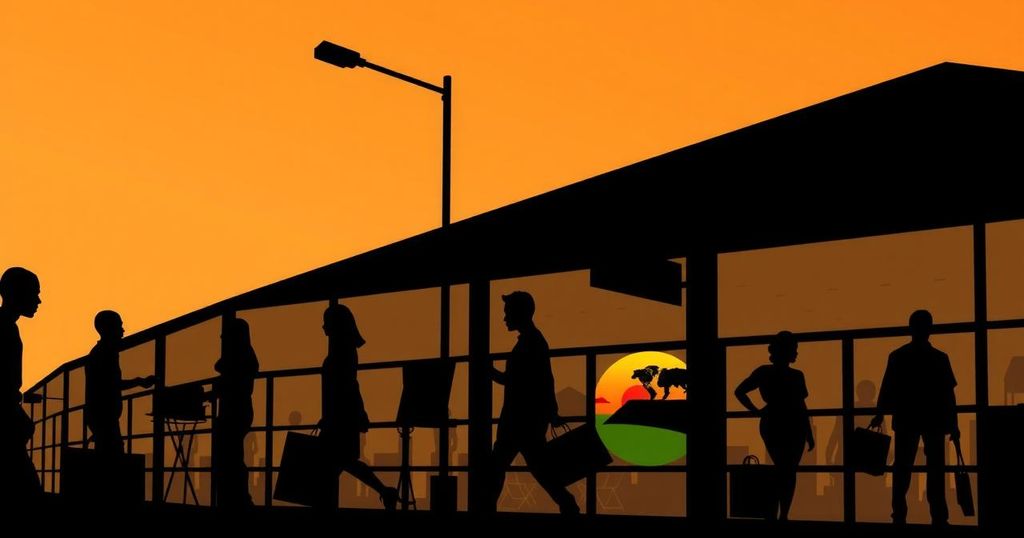Prominent Zimbabwean retailers are warning of potential store closures due to a government-mandated exchange rate they consider overvalued. The new gold-backed currency, ZiG, has lost nearly 80% of its value on the black market, leading to unsustainable pricing for formal retailers. These businesses are compelled to adhere to an official rate while facing supplier costs linked to black market rates. The Retailers Association has stressed the urgent need for policy changes to prevent closures and maintain competitiveness.
In a concerning development for Zimbabwe’s retail sector, prominent retailers have raised alarms regarding potential store closures resulting from government-imposed exchange rates deemed excessively high. Their fears have intensified as the new gold-backed currency, known as the Zimbabwe Gold (ZiG), has experienced significant depreciation, losing nearly 80% of its value on the black market, where it currently trades between 20 and 26 ZiG per dollar. Retailers are compelled to set their prices based on the official exchange rate of 14.8 ZiG to one dollar, as mandated by government regulations. However, leading companies, including OK Zimbabwe, Spar, and TM Supermarkets, which operates under the South African brand Pick N Pay, have contended that this officially sanctioned rate renders their goods unaffordable in comparison to the prices set by informal competitors, consequently driving customers away. The Retailers Association of Zimbabwe (RAZ) articulated in a formal correspondence addressed to the Ministry of Finance, “The situation is clearly untenable and will lead to company closures if authorities do not intervene with policy measures to protect the formal retail sector.” In the face of such regulations, retailers have noted that while adhering to the mandated exchange rate, their suppliers are utilizing black market rates, thereby necessitating a price increase on their end. The retailers have advocated for a pricing model that mirrors the fluctuations of the market exchange rates, which they believe will facilitate competitiveness and effective cost management.
Zimbabwe has faced significant economic challenges, particularly in establishing a stable currency. The introduction of the ZiG marked the nation’s sixth attempt in 15 years to stabilize its monetary system. However, this currency has quickly come under scrutiny and faced devaluation pressures that reflect a troubling lack of confidence among the public. With Zimbabwe’s history of hyperinflation and economic instability, currency exchange rates remain a pivotal concern impacting both consumers and businesses. The official exchange rates established by the government are often starkly different from those on the black market, creating significant challenges for formal retailers who must navigate these discrepancies to remain viable.
The dire situation facing Zimbabwe’s retailers underscores a critical need for government intervention to adjust the official exchange rate and align it more closely with market realities. As the retailers struggle under the weight of an inflated official rate, there is an urgent call to adopt a pricing model that reflects real-time market conditions. Failure to address these issues may lead to widespread store closures, further exacerbating economic difficulties in the country.
Original Source: www.investing.com







